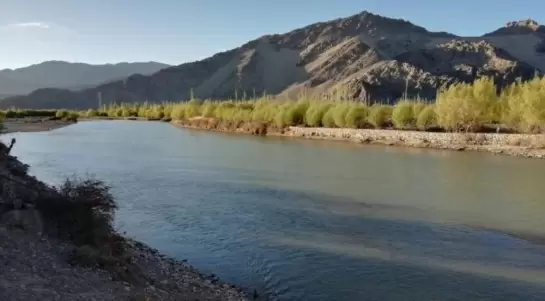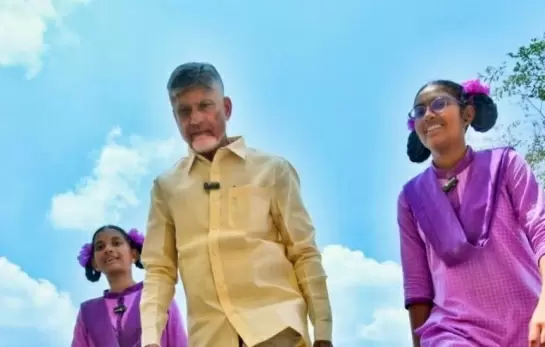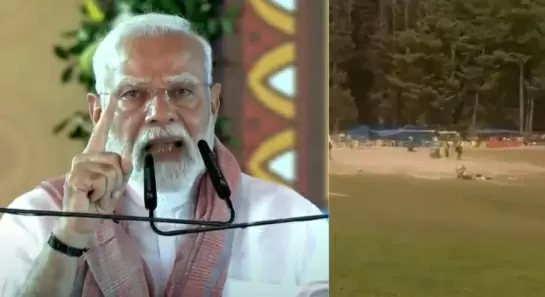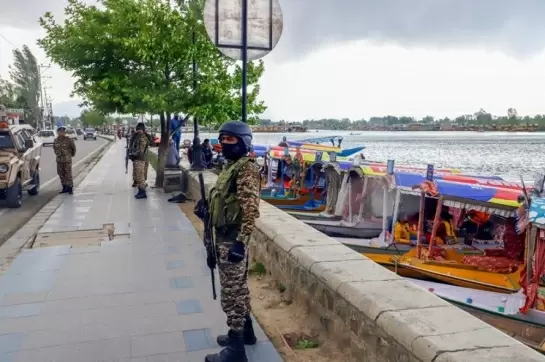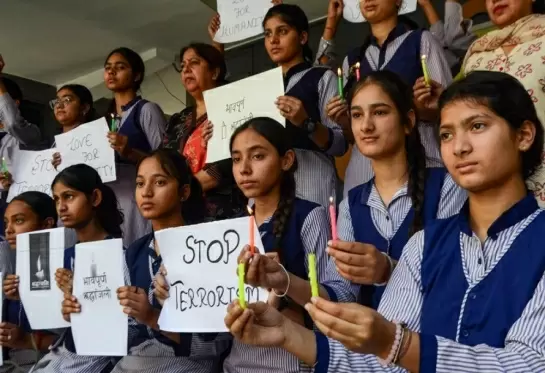Chenab Bridge: A bridge of hope and challenges
29-July-2020
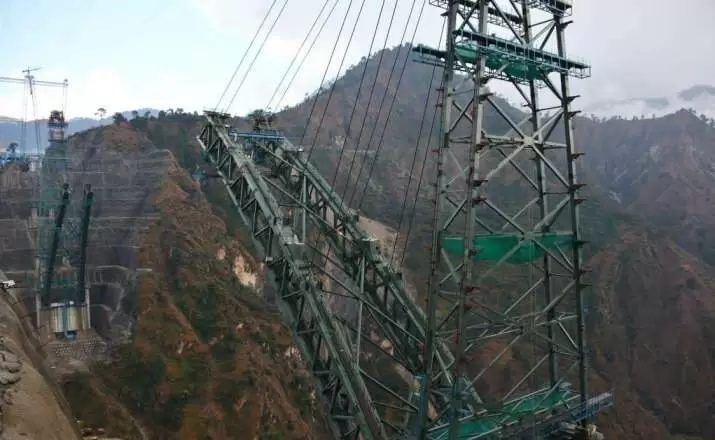
Kashmirs inaccessibility was a wake-up call for Indias then Prime Minister, Atal Bihari Vajpayee. When he returned to New Delhi after visiting Kargil in July 1999, he remarked, "We have not attacked any country in our fifty years of independence, but we have been attacked several times and lost our land. We are determined not to lose our land in the future." Preparations for a rail link in the Kashmir Valley began immediately.
In 2002, the Indian government broke ground on the railway, which it hoped will one day connect Baramulla, Kashmir's northernmost city, to New Delhi. But despite being prioritized by Vajpayee as a "project of national importance," construction on this strategic undertaking was plagued by setbacks.
For example, in 2009, a protracted dispute over gradients broke out between two private companies which had been commissioned to work on separate sections of the line.
But the biggest delay by far has been due to the plan's most ambitious feature, the Chenab Bridge -- a mile-long crossing made of blast-proof steel designed to withstand both earthquakes and explosives. When completed, it will be the loftiest railway span in the world, stretching across the Chenab River at a height greater than that of the Eiffel Tower. Scheduled to be completed in 2009, the bridge is the only section of the railway which is still unfinished. The latest target date is the summer of next year. But delays, nevertheless, have persisted.
There was also the threat of terrorism that had to be factored in. To be sure, there has been apprehension from day one that the signature Chenab bridge, just 60 km from the Line of Control (LoC) with Pakistan, could be a potential target for terrorists. Even the possibility of aerial attacks had to be considered.
In securing the bridge, the Defence Research and Development Organisation (DRDO) played its part. Under DRDO's advice, the bridge has been so designed that even if one of the 17 piers supporting it is blown up, the bridge will not collapse. The deck of the bridge can withstand a heavy TNT blast.
According to the plan, a ring of aerial security will also be provided to safeguard the bridge. In addition, an online monitoring and warning system will be installed on the bridge to protect the passengers and train in critical conditions.
Unsurprisingly, after becoming the head of government, Prime Minister Narendra Modi, sought reports to understand the cause of repeated delays.
Following this investigation, Modi paid a one-day visit to J&K. In July 2014, while inaugurating the railway's latest link, connecting Katra to Udhampur, Modi declared: "Our aim is to win over the hearts and minds of the people of Jammu and Kashmir through development, soon Kashmir will be prosperous and peaceful. The new rail link will speed up the process of development in the state."
"The journey started by Atal Bihari Vajpayee will be continued...," Modi stressed, describing the railway as a gift not just for the people of Jammu and Kashmir but for the whole of India.
Understanding its critical role, Modi directed officials to progress on the Chenab Bridge without any delay. The Chenab Bridge is being constructed between Bakkal and Kauri in the Reasi district of J&K, India. When completed, it will span 1,315 metres and the deck will be 359 metres above the water level, making it the highest rail bridge in the world.
Modi added that the construction of the Chenab bridge is the most challenging task of the whole Kashmir Rail link project. But at the same time, after the completion of the bridge, it will be recognized globally as an engineering marvel.
The bridge can bear wind speeds of up to 260 km per hour and a minus-20-degree centigrade temperature. Over 5,462 tonnes of steel will be placed high over the river-bed.
The most daunting challenge the engineers face is the wide gorge of the Chenab River. With its headwaters high up in the Himalayan mountain range, the river carves a deep gash that leaves its elevation more than 1,000 feet below the level of the rail line.
The engineers decided that the only bridge type suitable for the location would be a massive steel arch -- the highest-ever built for a railway at 1,056 feet from deck to water. Only an arch is capable of handling the weight of a 300 ton locomotive along with a thousand tons of passenger cars. With a length of 1,532 feet (467 meters), the main span will rank among the world's 10 longest arches.
There have been some false starts as well. In September of 2008 it was announced that the Chenab Railway Bridge has been cancelled despite the completion of the approach viaducts in 2007. Difficult geological conditions on the steep slopes supporting the arch foundations were cited as the reason as well as the development of a lower, more direct route through tunnels. In 2013 this decision was reversed with the bridge being constructed as originally planned.
"This is the most challenging project in the 150-year-long history of the Indian Railways. The highest railway bridge in the world, that will connect Kashmir with the rest of India through the rail line will be completed by December 2021," Sanjay Gupta, Chairman of Konkan Railway said in a statement.
According to the Ministry of Railways, the deadline for the completion of the railway project has been moved ahead from June 2022 to December 2021.
Whenever the Chenab Railway Bridge is finally completed, it will be more than just another bridge but a prestigious symbol of how far India and its railway engineers have come since the country's first mile of railway track became operational more than 150 years ago.
For the people of Kashmir, the railway will provide a magnificent opportunity of integrating with the rest of India for exciting opportunities provided by one of the most rapidly advancing and dynamic economies of the world. In turn, the rest of India will be further enriched by the permeation of Kashmir's magnificent cultural heritage.
(This content is being carried under an arrangement with indianarrative.com) - IANS
Ex-Andhra Intelligence Chief PSR Anjaneyulu Arrested Over Actress Kadambari Jethwani Harassment Case
Pope Francis Requested For Simplified Funeral Rites
Elista Launches Six New Made-in-India Residential Air Conditioners
Former DGP Om Prakash Murder: Wife Under Investigation, Says Minister
Ricky Rai, Son of Underworld Don Muthappa Rai, Shot at Near Bengaluru




